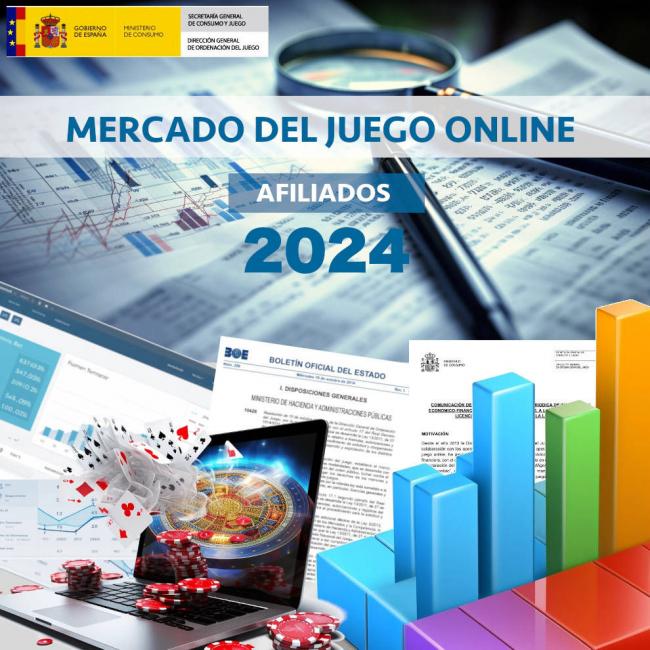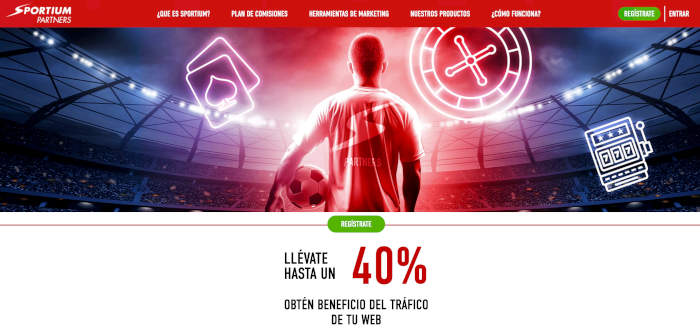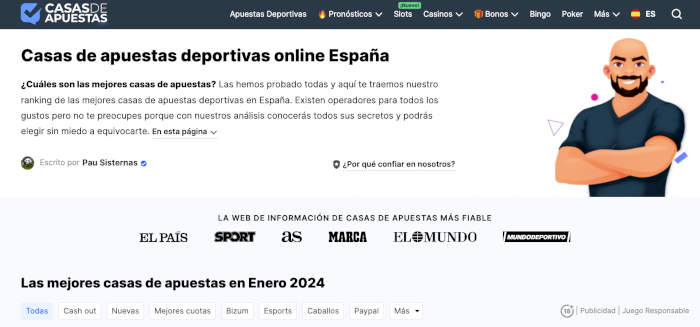The affiliate business in the regulated online gaming market in Spain has undergone significant changes in its two decades of existence, with two key moments being the start of the regulated market following
the entry into force of Law 13/2011, of May 27, on the regulation of gaming (June 2012) and more recently
the implementation of Royal Decree 958/2020, which restricted much of the commercial communications of gaming activities.
However, already in 2024, we are possibly on the verge of a new significant transition with the approval of the Royal Decree on the limits of joint deposit per player, currently in the process of drafting after having gone through public consultation.
We review in the following lines what is the reality of affiliates working in Spain, a country where the ever-increasing regulatory and advertising demands are splitting the historical space of these affiliates into two, between those who can meet all these new requirements and those who are forced to throw in the towel due to the impossibility of maintaining economic efficiency.
What is affiliation?
Affiliation in the context of the internet is commonly known as affiliate marketing and represents one of the most successful business models since the beginning of the Internet. Basically, a company remunerates its affiliates for each visitor or customer generated through the affiliate's marketing efforts.
This model is an excellent form of collaborative marketing in the sale of products and services online where the company that gets customers is the "advertiser" and the affiliate is the web project that promotes the products or services of the advertiser in exchange for a commission.
There are dozens of techniques to promote these products, most of them related to offering specific content or information on niche websites, blogs, email campaigns, social media posts, and any formula where you don't pay directly to Google or third-party companies.
Such has been the success of affiliate marketing that a new business segment has also appeared in the form of affiliate platforms or affiliate networks that mediate between advertisers and affiliates, providing the necessary technology for affiliates to promote products and track sales or revenues generated.
Affiliate Marketing in Online Gaming in Spain
Even before the regulated market, the affiliate in the online gaming sector used to be a web project dedicated to a closed list of topics: reviews of games or operators, bonus catalogs, tips for winning, strategy, forums, poker schools...
Taking advantage of the quality of their content or their good positioning in search engines, these projects achieved visits (traffic) and tried to convert the visitor into a customer of one of the operators with whom an agreement had been previously reached. The affiliate's visitor clicks on the affiliate link, which contains a unique tracking code, and the visitor is directed to the advertiser's website, being identified as a customer who arrives through the affiliate.
In the gaming sector, the affiliate usually receives a commission based on the sale or action completed. Commissions can be based on different models, the most common being CPA (cost per acquisition with a single payment when certain circumstances are met, for example, the player deposits a certain amount with the operator), RS (Revenue Share, i.e., periodic commissions that the affiliate receives from the money generated by the player at the operator) or mixed (when the operator pays a CPA and also an RS to the affiliate for each player).
In gaming, other models such as CPL (cost per lead), CPC (cost per click) have been shown to be inefficient.
Affiliation agreements between operator and affiliate were usually closed through negotiation between a specialized employee of the operator (affiliate manager) and the affiliate; or through an automated process accessed in the ad hoc sections that operators have and where they offer their own affiliate programs.
The Great Transformation of 2012
The arrival of the regulated market in Spain in June 2012 significantly altered the affiliate model in Spain. With a list of regulated operators, many unlicensed competitors disappeared from the top positions in Google searches, sparking a significant struggle to invest in advertising and stand out from the rest.
Additionally, many affiliate businesses based on CPA disappeared as the cost per acquisition in products like Poker dropped significantly when it was confirmed that only Spanish players were admitted to regulated poker rooms. Schools like Educapoker or PokerStrategy dramatically reduced their size and operations, while affiliates who prioritized volume and the number of web pages in their networks over quality also lost their strong position.
The regulation also led mainstream media to compete in gaming content, and sports betting portals appeared within media outlets like As, Marca, Sport, or Mundo Deportivo, making it difficult for traditional sports betting portals (betting forums, odds comparators, and prediction websites) to acquire new players. This facilitated the emergence of new business models within affiliation, such as tipsters.
Also, generic email marketing companies (not specialized in gaming) began to establish affiliate agreements with operators.
In all the quarterly reports published by the DGOJ, the budget item for AFFILIATES in the global marketing expenditure of the operators can be consulted. Below we show the average evolution year after year by quarter, with a clear evolution and more investment from the moment sponsorships and other forms of advertising are prohibited by the Royal Decree on Commercial Communications.
- 2013 --> €3,110,302,000
- 2014 --> €3,398,209,000
- 2015 --> €3,677,546,000
- 2016 --> €4,884,357,000
- 2017 --> €5,422,393,000
- 2018 --> €6,296,929,000
- 2019 --> €10,177,247,000
- 2020 --> €10,288,778,000
- 2021 --> €12,345,412,000
- 2022 --> €8,951,067,000
- 2023 --> €12,428,213,000
In any case, what is observed is that the expenditure on AFFILIATES usually represents a very small part of the total investment in marketing, where RELEASED BONUSES and ADVERTISING far exceed 55 and 70 million euros annually, respectively, while the investment in affiliates continues to be around 10 million on average.
Impact of Royal Decree 958/2020 on the Affiliate Sector
Royal Decree 958/2020, which regulates online gaming advertising, significantly affects affiliates. This decree restricts the promotion of gaming operators that do not have a license in Spain, limits access to affiliate channels to minors, and establishes the need to disseminate responsible gaming messages.
In addition, promotions on video platforms and social networks must comply with specific restrictions, such as preventing access to minors and targeting the audience. These regulations also affected the most successful affiliate models, such as Tipsters, sports betting predictors, who must comply with similar conditions on their websites or channels on Telegram and social networks.
The new regulation, for example, requires having mechanisms to prevent access to minors on websites, contain responsible gaming messages, and not promote acquisition offers or unlicensed betting houses in Spain. In addition, tipsters must fully publish their results in predictions.
All this meant a significant drop in the relevance of these specialized models, which have been forced to adapt to these new conditions to continue operating legally and effectively in the Spanish market. Many of them have disappeared, and those who have taken their place in the number of clients generated for the operators have been affiliate platforms like Afiliago, which have many more resources and experience in selling products or services like VPNs or hosting companies.
Current Reality in 2024
- Affiliates with websites are obliged to comply with current regulations (for example, with restrictions on access to minors under 18 years old or with the prohibition of promoting acquisition offers), which generally reduces accessibility and ease of use, impacting traffic and volume of visits.
- This has caused many affiliates to stop operating in Spain and, in the case of sports betting and casinos, to turn to more permissive markets in terms of advertising conditions, such as Mexico or Colombia.
- The trend towards greater regulatory compliance has meant that the affiliates remaining in Spain must invest in the quality of their content and offer high-impact products and services. This is the case for sports betting affiliates who must successfully compete with operators to be in the top positions in searches related to sports, predictions, and odds.
- Traditionally, Google's SERPs (search engine results pages) for terms like "online casino" or "sports betting" were dominated by operators, while queries like "best online casinos" were the territory of affiliates. However, this is changing. Now, an increasing number of SERPs show sites of generalist media outlets, apparently unrelated, climbing in the rankings. This struggle for top positions in Google also involves media outlets like DAZN or Eurosport, further complicating traffic acquisition for affiliates.
- Despite restrictions on advertising and promotion, marketing spending remains high for operators, with, for example, a total of 93.3 million euros in the quarter, including 11.8 million euros in affiliate expenses. This investment reflects the ongoing importance of marketing and affiliation in the online gaming industry.
- In casinos, affiliates specialized in product reviews, in this case of slots, have appeared, as the offer of these in regulated operators is enormous, with operators like Sportium.es or 888Casino.es exceeding 1500 slots.
- Operators are becoming more selective about which affiliates they do business with due to increasing compliance demands, reducing the size of their affiliate programs.
- The influence of AI (Artificial Intelligence) in Affiliate Marketing suggests a potential for improvement and expansion as international affiliates will have an easier time replicating their content to the Spanish language and markets. Additionally, AI can transform the creation and optimization of ads into a more efficient and simplified process and even create customer service for Affiliates.
MORE INFORMATION
- Read the Analysis of the
Spanish Market from the OPERATORS' point of view
- Read the Analysis of the
Spanish Market from the PLAYERS' point of view
18+ | Juegoseguro.es – Jugarbien.es





